![]() To view this press release as a Word document
To view this press release as a Word document
Business sector debt increased by about 0.6 percent to around NIS 786 billion in August. Households' housing debt increased by about NIS 2.5 billion (0.9 percent), to about NIS 284 billion at the end of the month.
a. The business sector's outstanding debt
- The total outstanding debt of the business sector increased by about NIS 4.8 billion (0.6 percent) in August, to about NIS 786 billion. The increase derived primarily from the depreciation of the shekel against the dollar, which increased the shekel value of foreign currency denominated debt, and from the increase in the CPI which increased the value of CPI-indexed debt. The remainder of the increase derived from NIS 0.5 billion in net funds raised—NIS 1.9 billion raised in tradable debt was partly offset by NIS 1.5 billion in repayment of bank loans.
- In September, the business sector (excluding banks and insurance companies) issued about NIS 1 billion of bonds, all of which were tradable bonds. The figure is considerably lower than the monthly average of bond issuances since the beginning of the year of about NIS 2.3 billion. This is the fifth consecutive month in which nontradable bonds were not issued.
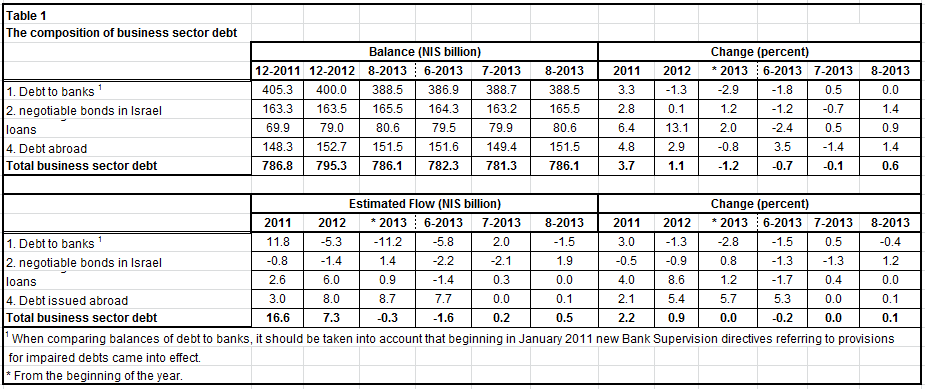

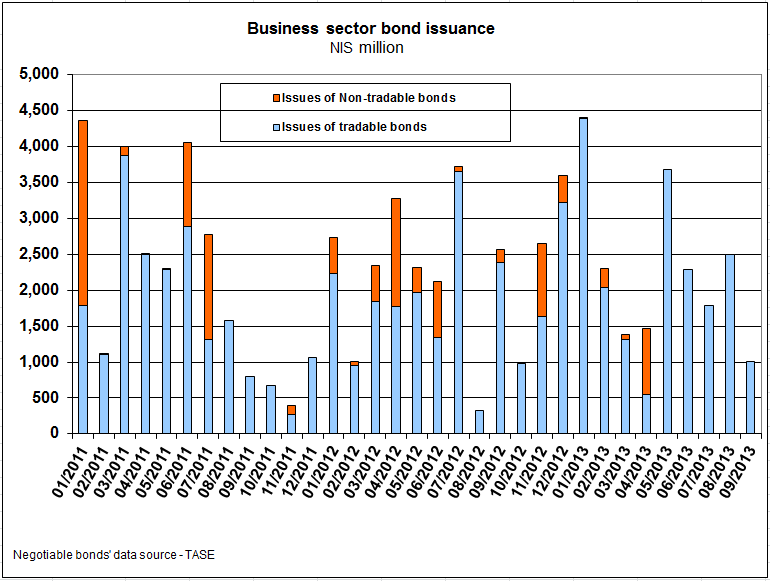
b. Households' debt
- Households' outstanding debt in August was about NIS 402 billion. The balance of housing debt, which is included in the total household debt, increased by about NIS 2.5 billion (0.9 percent), and was about NIS 283.5 billion at the end of August.
- In September, there was a decline in new mortgages taken out. This was a seasonal decline, against the background of the New Year holiday season, to about NIS 3.5 billion. The monthly average since the beginning of the year is about NIS 4.3 billion.
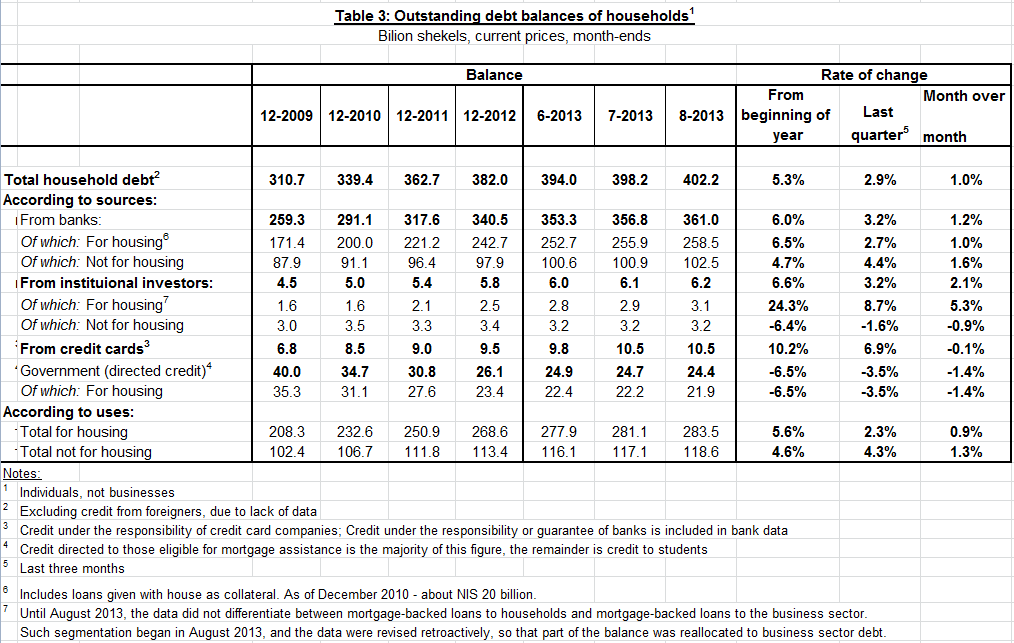
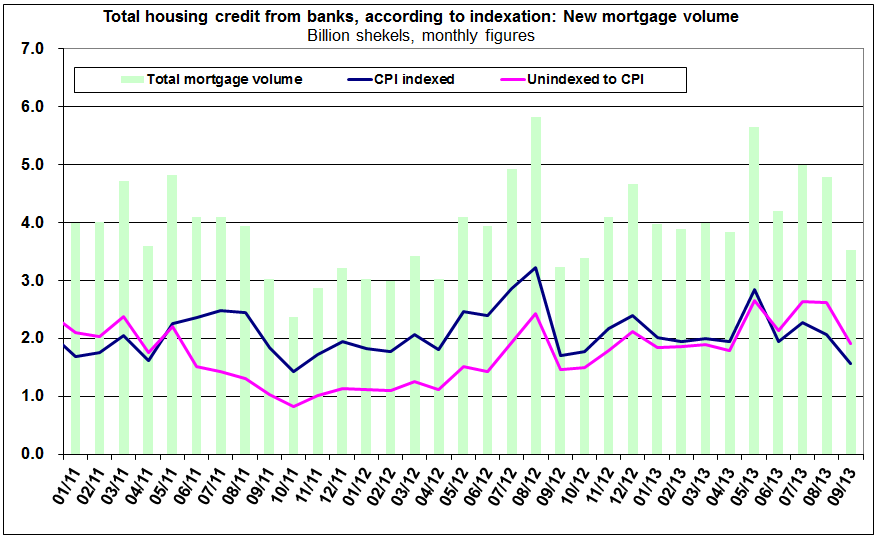
c. The cost of the debt
- In August, the yield spread in the unindexed track declined by 0.08 percentage points, as a result of a decline in the average interest rate on credit balances.
- In the CPI-indexed track, the spread between interest rates on new bank credit granted and interest on deposits widened by 0.12 percentage points in August, due to an increase in the interest rate on the credit.
- In August, the spread between the yield on indexed corporate bonds—measured by the Tel-Bond 60 Index—and average yields on indexed government bonds was 1.44 percentage points, higher than the spread in July, which was 1.28 percentage points. Since September 2012, the spread has narrowed by about 1.6 percentage points.
- In September, the average interest rate on new unindexed mortgages was almost unchanged compared with the previous month. The average interest rate on new CPI-indexed mortgages increased by about 0.11 percentage points.
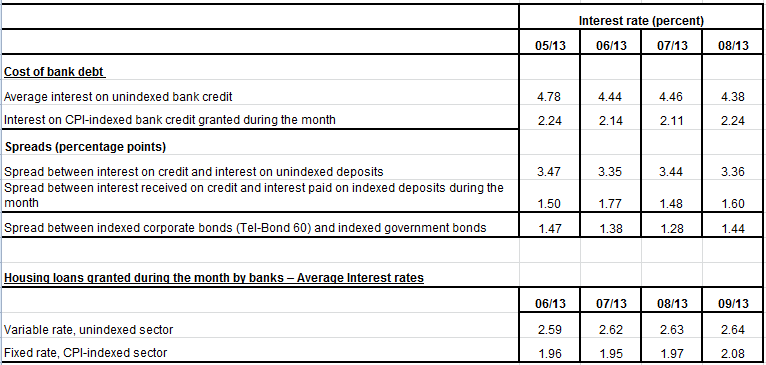
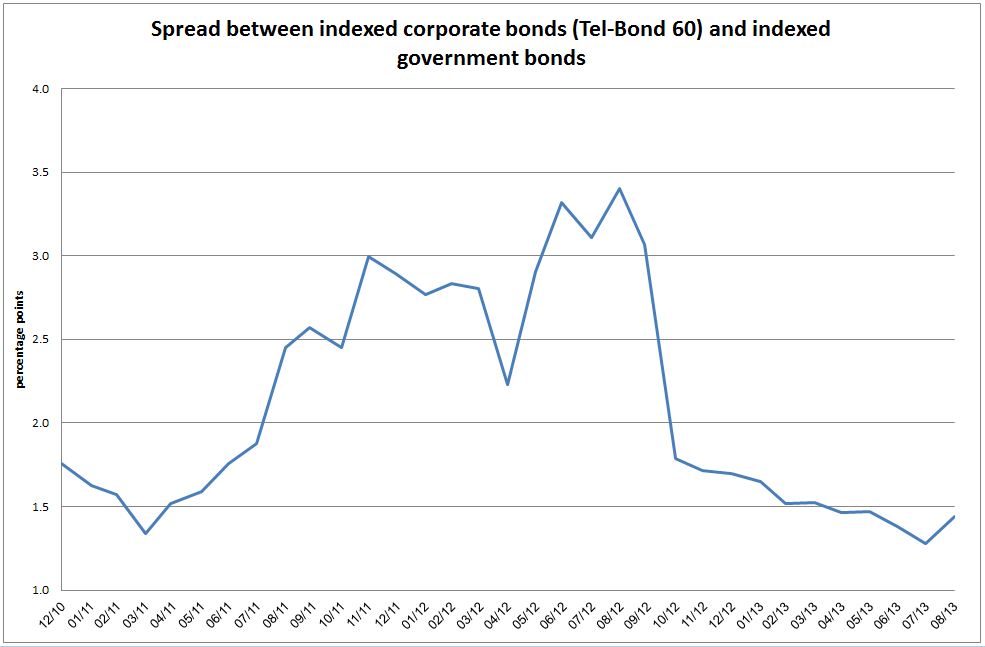
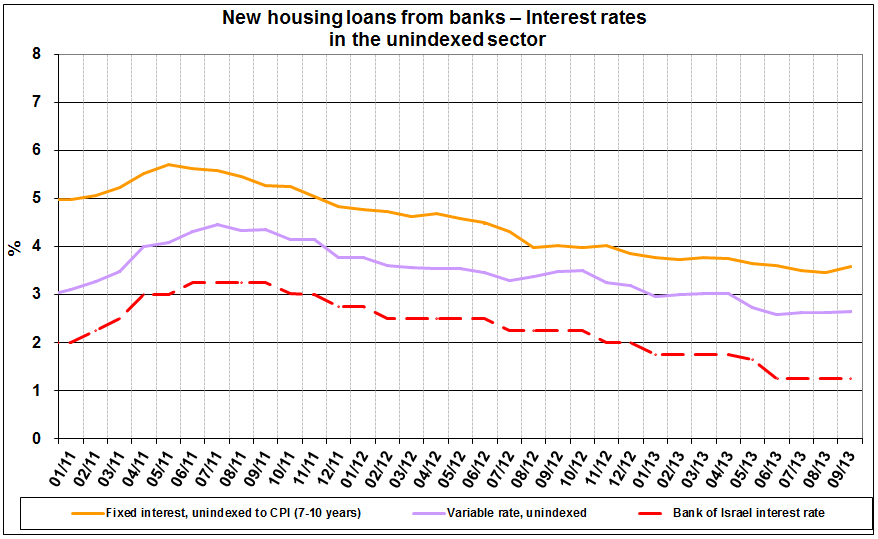
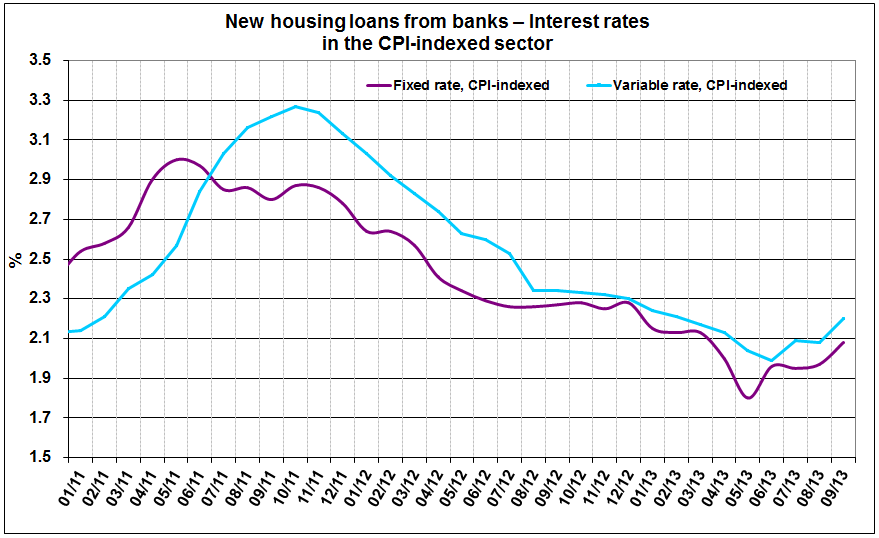
For links to Information and Data on the Bank of Israel website: